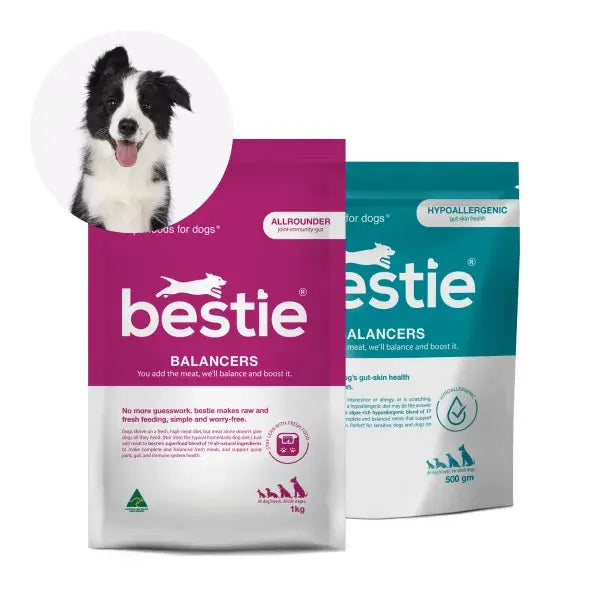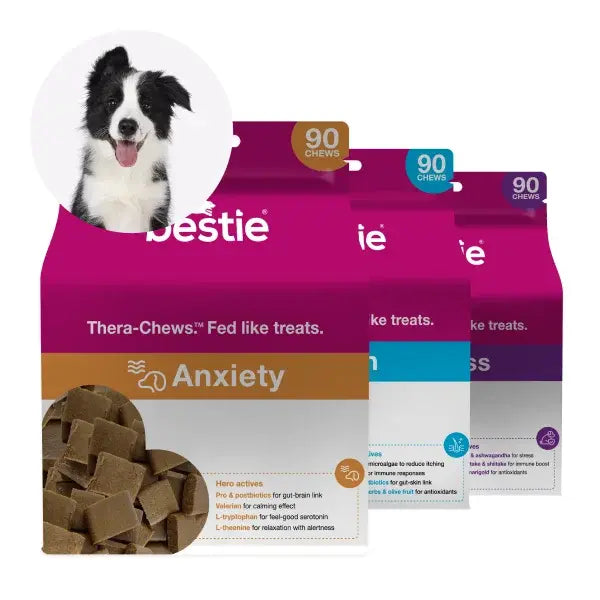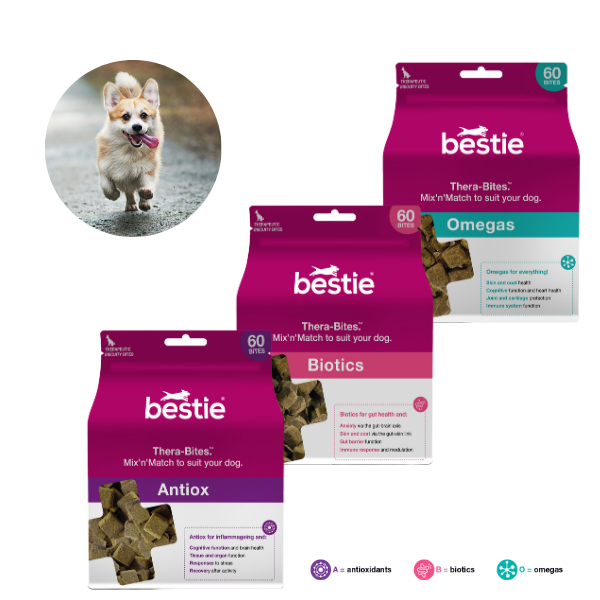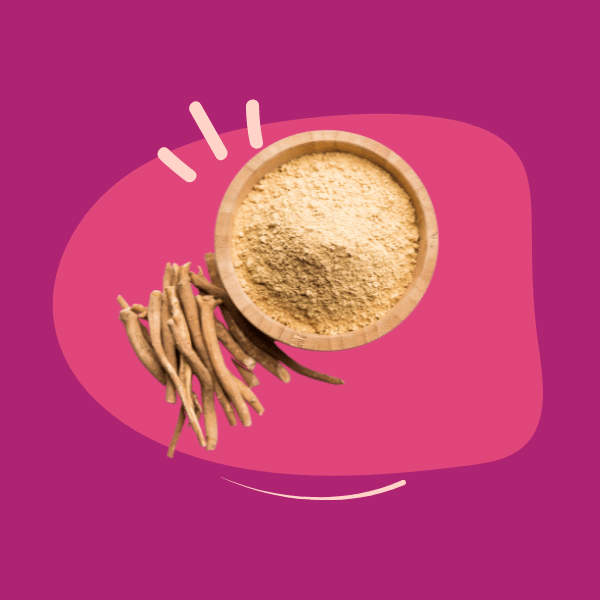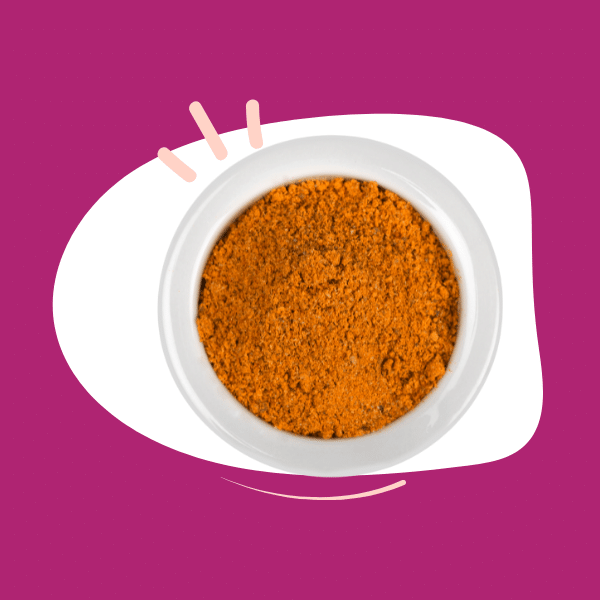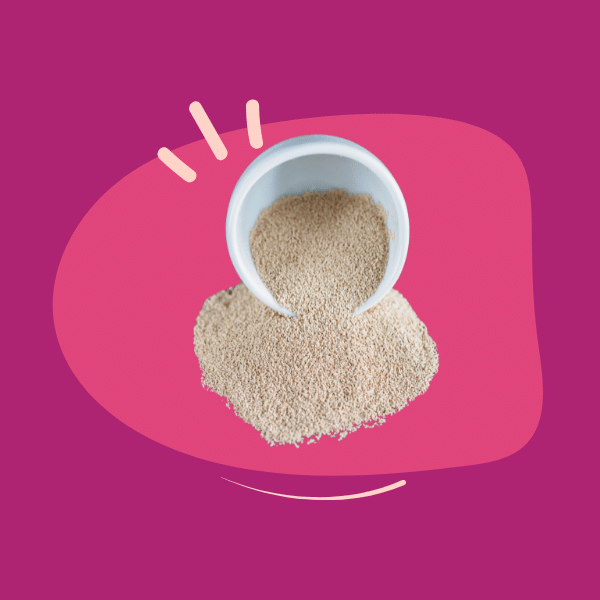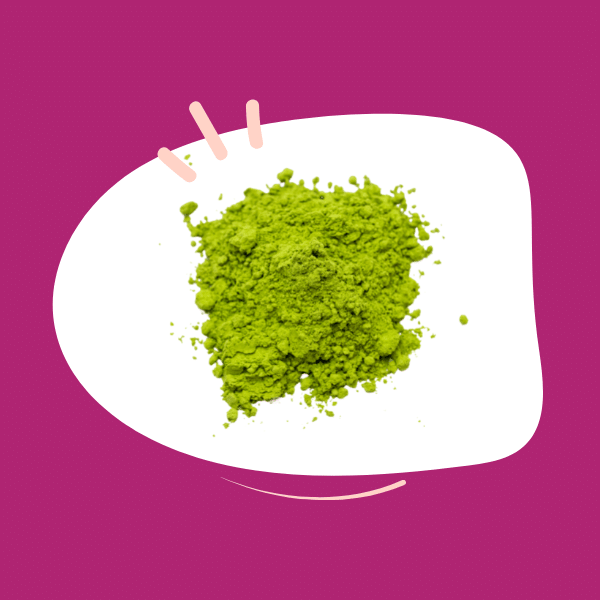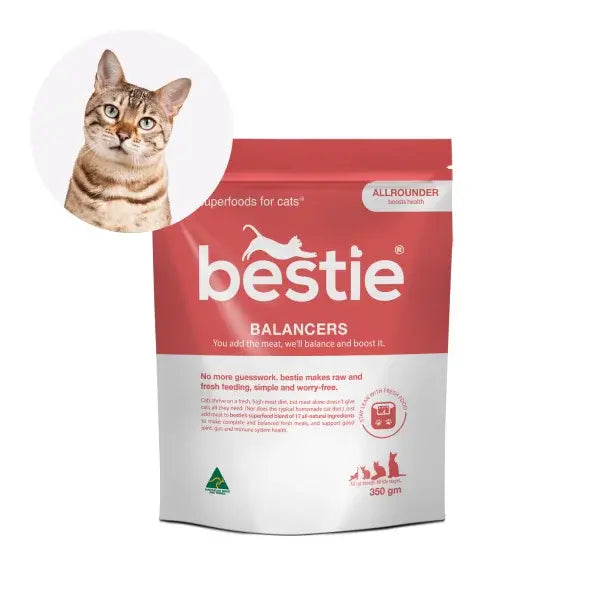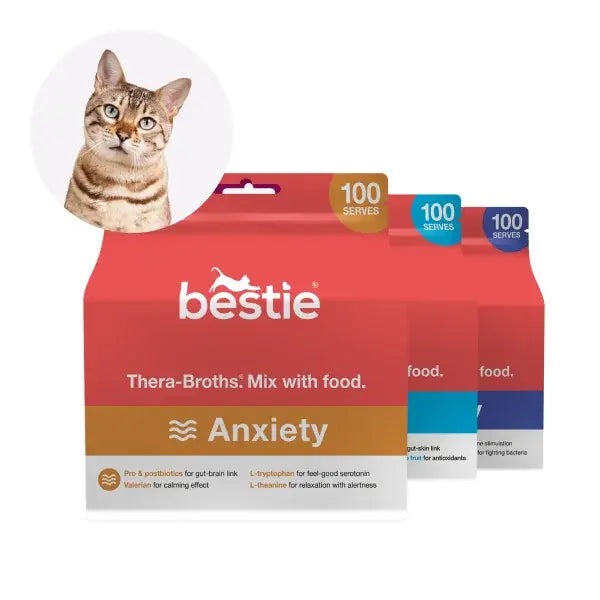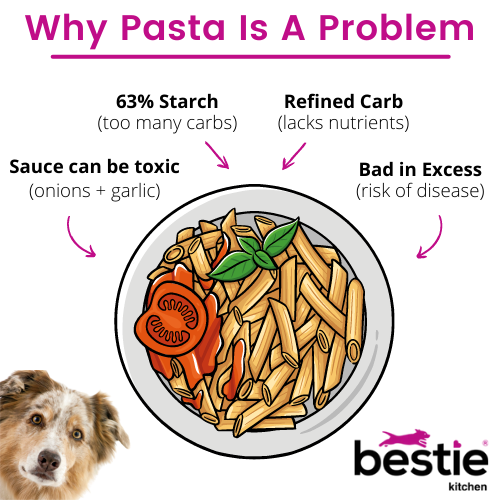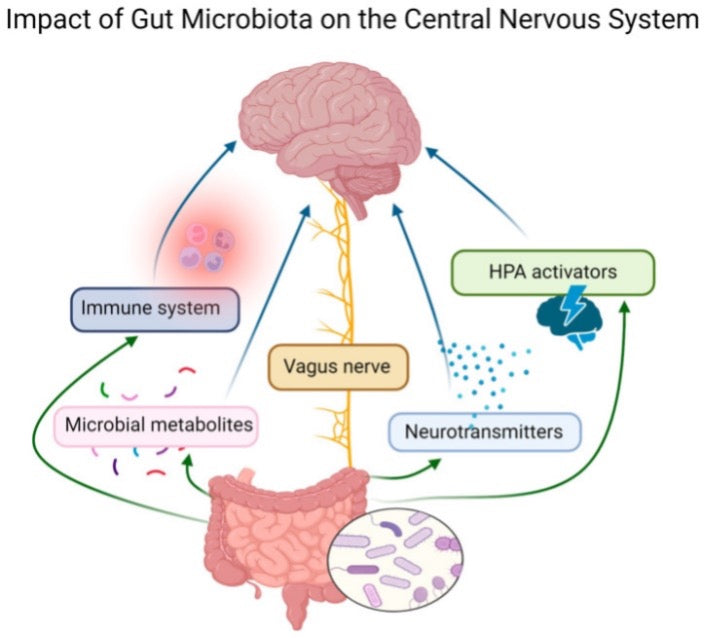In a nutshell: Can Dogs Eat Pasta?
-
Pasta is made of flour, water, and eggs - well tolerated by dogs.
-
Pasta is primarily starch, which the body breaks down into simple sugars.
-
Unlike humans, dogs don’t require dietary carbohydrates as an energy source.
-
Feeding your dog pasta can lead to hyperglycemia and affect their overall health.
-
Can dogs eat pasta? Yes.
-
Should dog’s eat pasta? No.
Every pet owner wants to provide their dog with the best food possible, but does pasta make this list? Can dogs eat pasta?
In this article, we’re going to cover some important questions like:
- What is pasta made of?
- Are carbohydrates bad for your dog?
- What happens when your dog eats pasta?
- Can feeding your dog pasta cause problems?
Let’s find out!
What is pasta made of?
Pasta is a simple wheat product made of three main ingredients: flour, water, and eggs. Dogs tend to tolerate these ingredients well, and there are no known toxicities (1).
So, can dogs eat pasta? Yes.
Should dogs eat pasta? That’s a different question.
The problem with pasta is that it’s often a refined carbohydrate. This means the wheat is processed and stripped of its fibre, vitamins, and minerals(2). We’re left with a processed food lacking the necessary nutrients to keep your dog healthy.
In addition, pasta consists of 63% starch - a branched sugar made of glucose and galactose molecules. These are digestible sugars and not good for your dog in high amounts.
Suddenly, pasta has lost its appeal as a “healthy” snack.
Are carbohydrates bad for your dog?
Carbohydrates are extremely important for your dog’s health, but they need to be the right kind. In the form of fibre, carbohydrates are difficult to digest. This is good because the sugar portion remains inaccessible to your dog, while still promoting healthy gut function.
We should also point out that your dog doesn’t depend on carbohydrates as an energy source in the same way that humans do. Their digestive system is incredibly versatile, capable of breaking down protein and fat into their own source of energy-rich carbohydrates(4).
In a recent study, researchers wanted to see if dogs showed interest in carbohydrate-rich meals. When offered meals with varying proportions of protein, fat, and carbohydrates, dogs preferred the option with the lowest ratio of carbohydrates (5). (We also talk more about the research that demonstrates this in this blog post: Dogs know what to eat and it’s not carbs!)
You can feed your dog a couple pieces of cooked pasta as a treat, but pasta should never make up a substantial portion of your dog’s diet.
In case you feed your dog pasta, take notice of any intolerance or diarrhea in case your dog has wheat sensitivities (3)!
What happens when your dog eats pasta?
Digestion starts in the mouth.
By chewing the pasta, your dog creates a starch slurry that’s accessible to enzymes in the small intestines. The main enzyme is pancreatic amylase, and here it breaks down starch into its basic components - glucose and galactose (6).
Once amylase has finished digesting starch, the small intestine absorbs these freed sugars into the bloodstream. Based on your dog’s metabolic needs, they’ll either:
- Create energy - Sugars are converted into usable energy in the form of ATP (6).
- Store energy - If your dog doesn’t need immediate energy, glucose is converted to glycogen and stored in the liver and muscles (6).
- Extra energy storage- If glycogen reserves are full, your dog’s cells will absorb the excess sugar and convert it to fat (6).
Sometimes, the carbohydrate load can be so high that your dog’s cells can’t absorb all the sugar. Especially in chronic cases, elevated blood sugar can damage vital organs and severely affect your dog’s health.
At Bestie Kitchen, our goal is to help you give your dogs and cats great lives…and we start with the diet. By minimising excess carbohydrates in your dog’s diet, we can promote a longer and happier life for your dog!
Can feeding your dog pasta cause problems?
The short answer is, yes. Feeding your dog pasta can lead to problems.
The main concern comes from excess blood glucose. Sincethe pancreas releases insulin to regulate blood sugar, prolonged increases in blood sugar can cause your pancreas to becomeoverworked. This can have a significant impact on your dog’s well-being.
A study investigating the effects of high carbohydrate diets in dogs found insulin and ghrelin to be elevated in the blood (7). Both molecules are associated with obesity, cardiovascular disease, and the onset of diabetes (8).
Another concern is pasta sauce. What makes pasta sauce so delicious can be toxic for dogs. For example, both onion and garlic contain sulfoxides - chemical compounds capable of damaging hemoglobin in your dog’s blood. Your dog relies on hemoglobin to carry oxygen throughout the body, but blood cells are destroyed as damage accumulates, putting dogs at risk of hemolytic anemia (1).
If you still decide to feed your dog pasta, keep it simple and skip the sauce.
Final Thoughts
Can dogs eat pasta? Yes, but in small amounts.
Pasta probably won’t harm your dog if given occasionally as a treat, but it’s best to search for an alternative that provides real nutrients your dog can benefit from.
Instead, consider healthier alternatives like fibre-rich vegetables, or one of our guilt-free treats that you can bake at home. You can find some of these healthy snacks here.
References:
- Kovalkovičová N, Sutiaková I, Pistl J, Sutiak V. Some food toxic for pets. Interdiscip Toxicol. 2009;2(3):169-176. doi:10.2478/v10102-009-0012-4
- Gaesser GA. Perspective: Refined Grains and Health: Genuine Risk, or Guilt by Association?. Adv Nutr. 2019;10(3):361-371. doi:10.1093/advances/nmy104
- Lowrie M, Garden OA, Hadjivassiliou M, Sanders DS, Powell R, Garosi L. Characterization of Paroxysmal Gluten-Sensitive Dyskinesia in Border Terriers Using Serological Markers. J Vet Intern Med. 2018;32(2):775-781. doi:10.1111/jvim.15038
- Bosch G, Hagen-Plantinga EA, Hendriks WH. Dietary nutrient profiles of wild wolves: insights for optimal dog nutrition? Br J Nutr. 2015 Jan;113 Suppl:S40-54. doi: 10.1017/S0007114514002311. Epub 2014 Nov 21. PMID: 25415597.
- Roberts MT, Bermingham EN, Cave NJ, Young W, McKenzie CM, Thomas DG. Macronutrient intake of dogs, self-selecting diets varying in composition offered ad libitum. J Anim Physiol Anim Nutr (Berl). 2018 Apr;102(2):568-575. doi: 10.1111/jpn.12794. Epub 2017 Oct 12. PMID: 29024089.
- Rankovic A, Adolphe JL, Verbrugghe A. Role of carbohydrates in the health of dogs. J Am Vet Med Assoc. 2019 Sep 1;255(5):546-554. doi: 10.2460/javma.255.5.546. PMID: 31429654.
- Schauf S, Salas-Mani A, Torre C, Jimenez E, Latorre MA, Castrillo C. Effect of feeding a high-carbohydrate or a high-fat diet on subsequent food intake and blood concentration of satiety-related hormones in dogs. J Anim Physiol Anim Nutr (Berl). 2018 Feb;102(1):e21-e29. doi: 10.1111/jpn.12696. Epub 2017 Apr 26. PMID: 28447374.
- Pulkkinen L, Ukkola O, Kolehmainen M, Uusitupa M. Ghrelin in diabetes and metabolic syndrome. Int J Pept. 2010;2010:248948. doi:10.1155/2010/248948
Associated Reference Links:
- (Kovalkovičová) https://www.ncbi.nlm.nih.gov/pmc/articles/PMC2984110/
- (Gaesser) https://www.ncbi.nlm.nih.gov/pmc/articles/PMC6520038/
- (Lowrie) https://www.ncbi.nlm.nih.gov/pmc/articles/PMC5866963/
- (Bosch) https://pubmed.ncbi.nlm.nih.gov/25415597/
- (Roberts) https://pubmed.ncbi.nlm.nih.gov/29024089/
- (Rankovic) https://pubmed.ncbi.nlm.nih.gov/31429654/
- (Schauf) https://pubmed.ncbi.nlm.nih.gov/28447374/
- (Pulkinen) https://www.ncbi.nlm.nih.gov/pmc/articles/PMC2911592/


